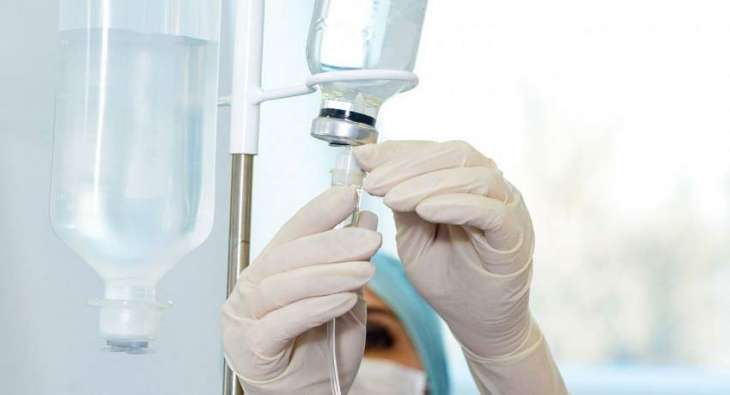The US-produced Remdesivir medication is unlikely to become a universal solution for eradicating the coronavirus but is still an important part of a drug cocktail to fight the disease, a prominent medicinal chemist and the president-elect of the International Society for Antiviral Research (ISAR), Katherine Seley-Radtke, told Sputnik
MOSCOW (Pakistan Point News / Sputnik - 15th May, 2020) The US-produced Remdesivir medication is unlikely to become a universal solution for eradicating the coronavirus but is still an important part of a drug cocktail to fight the disease, a prominent medicinal chemist and the president-elect of the International Society for Antiviral Research (ISAR), Katherine Seley-Radtke, told Sputnik.
Remdesivir, a broad-spectrum antiviral drug developed by the US biopharmaceutical company, Gilead Sciences, was initially intended as an anti-Ebola drug but proved ineffective for that purpose. Later, it was used for treating the SARS and MERS coronavirus patients. Since February, the company has been conducting trials to evaluate the potential for Remdesivir to treat COVID-19 patients. Though it has not yet been globally authorized, in May, some countries across the world started to use the experimental drug to treat COVID-19.
"Remdesivir will not be the total answer. It is the first step, albeit an important one, but it will most likely be used as part of a combination of drugs, or a drug cocktail as it is known, as we do for other viruses such as HIV and HCV. It is important to hit the virus at several points in the virus's life cycle so you can shut down replication completely, as well as to lower the chances of developing resistance to a drug," Seley-Radtke, a professor of the Department of Chemistry and Biochemistry at the University of Maryland, said.
In April, the US National Institute of Allergy and Infectious Diseases (NIAID), part of the US National Institutes of Health, published the results of its study of the drug on 1,063 COVID-19 patients. The randomized, controlled clinical trial found that patients who received Remdesivir recovered faster than those who received placebo 11 days compared to 15 days, respectively. The mortality rate was also lower for the group receiving the medicine.
According to Seley-Radtke, there are reasons to be optimistic about the first results of the trials, as Remdesivir is a direct-acting antiviral compound that had already exhibited very potent activity against two related coronaviruses - SARS and MERS.
In addition, the fact that the clinical trials are showing positive results even in critical patients is strong evidence that the drug will at least be part of the solution. However, more trials are necessary in order to study the effects in certain population groups, the chemist said.
"We are already seeing the results of the first clinical trials on Remdesivir, and there are already several very large trials going on right now all over the world that should be reporting their results very soon ... Once we have the results of more of the clinical trials where they have looked carefully at different populations, age groups, ethnicities, people with underlying health conditions, then we will have a clearer picture of whether or not there is any group that it works better or worse in, or not at all," Seley-Radtke said.
Commenting on the concerns that the drug was authorized by the US food and Drug Administration to be used in treatment before trials were completed, Seley-Radtke said that the measure was necessary in order to get a clearer picture of how the drug works for different patients.
"The scientific experts who evaluated the early studies felt it was important to get it approved under emergency conditions to get as much clinical trial data as fast as possible," she added.
So far, the major effect of the drug has been a shorter recovery time, given the positive course of the disease, but the question remains whether it is suitable to help avoid possible complications and reduce the number of fatalities. According to Seley-Radtke, though the latter would be the most important goal, all three issues need to be addressed during the studies.
"Each one has its own implications - for example, the longer it takes to recover, the more crowded the hospitals become and the supplies needed to treat them become depleted, the complications lead to other health conditions, including some that appear to be pretty devastating and long-lasting, but death is, clearly, the worst of the three - we, obviously, want to reduce the number of people dying," she said.
With trials on Remdesivir being continued, Gilead Sciences is reportedly working on another pro-drug that is easier to make and has been shown to be effective against the coronavirus in animal models GS-441524.




